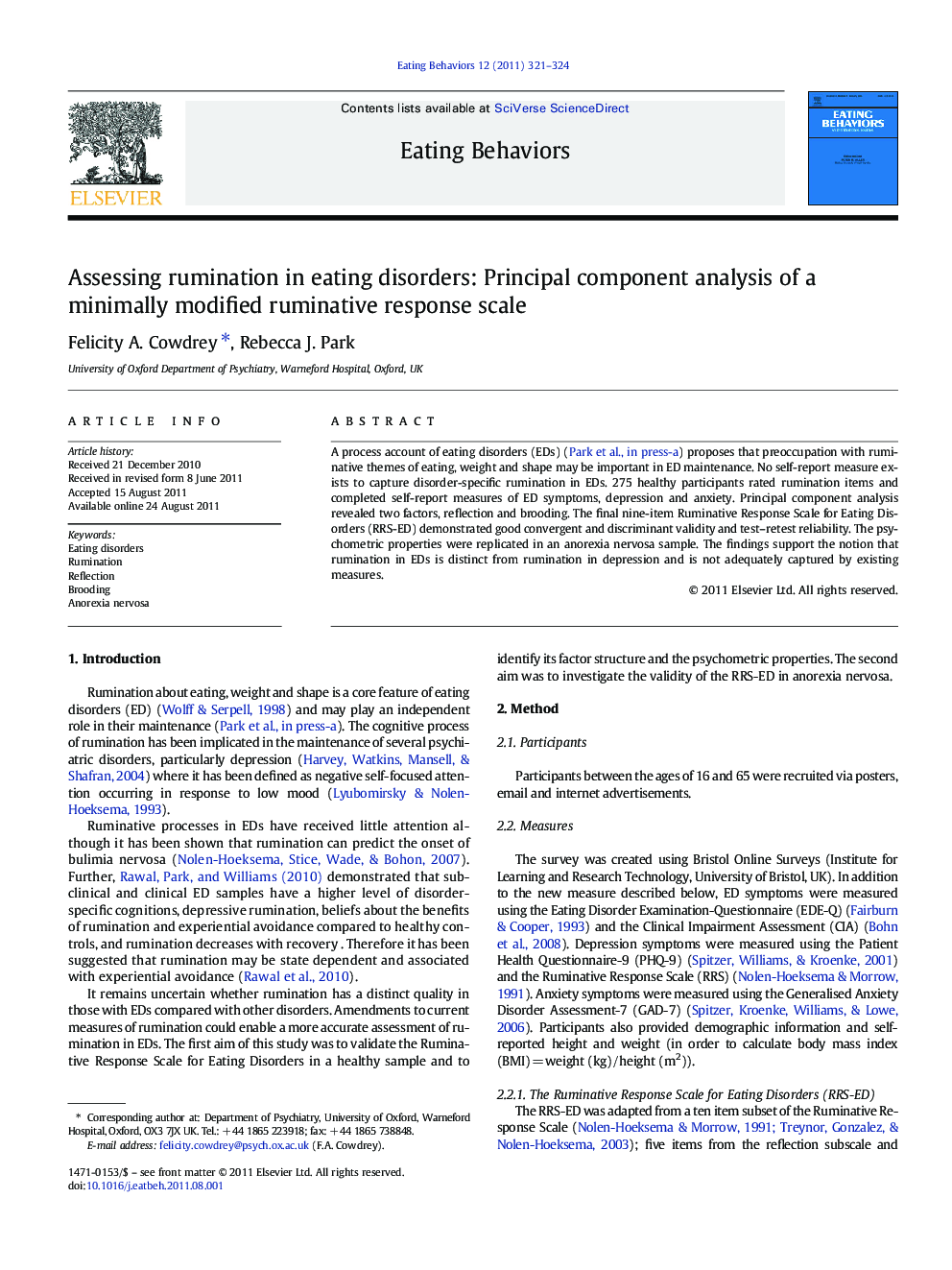| Article ID | Journal | Published Year | Pages | File Type |
|---|---|---|---|---|
| 906602 | Eating Behaviors | 2011 | 4 Pages |
A process account of eating disorders (EDs) (Park et al., in press-a) proposes that preoccupation with ruminative themes of eating, weight and shape may be important in ED maintenance. No self-report measure exists to capture disorder-specific rumination in EDs. 275 healthy participants rated rumination items and completed self-report measures of ED symptoms, depression and anxiety. Principal component analysis revealed two factors, reflection and brooding. The final nine-item Ruminative Response Scale for Eating Disorders (RRS-ED) demonstrated good convergent and discriminant validity and test–retest reliability. The psychometric properties were replicated in an anorexia nervosa sample. The findings support the notion that rumination in EDs is distinct from rumination in depression and is not adequately captured by existing measures.
► Rumination in eating disorders (EDs) has a disorder-specific content. ► The Ruminative Response Scale For Eating Disorders (RRS-ED) was developed and demonstrated good psychometric properties. ► Greater ED symptoms are associated with higher levels of ED-specific rumination, compared to depressive rumination. ► The RRS-ED may be useful for researchers and clinicians to explore ruminative processes in EDs.
